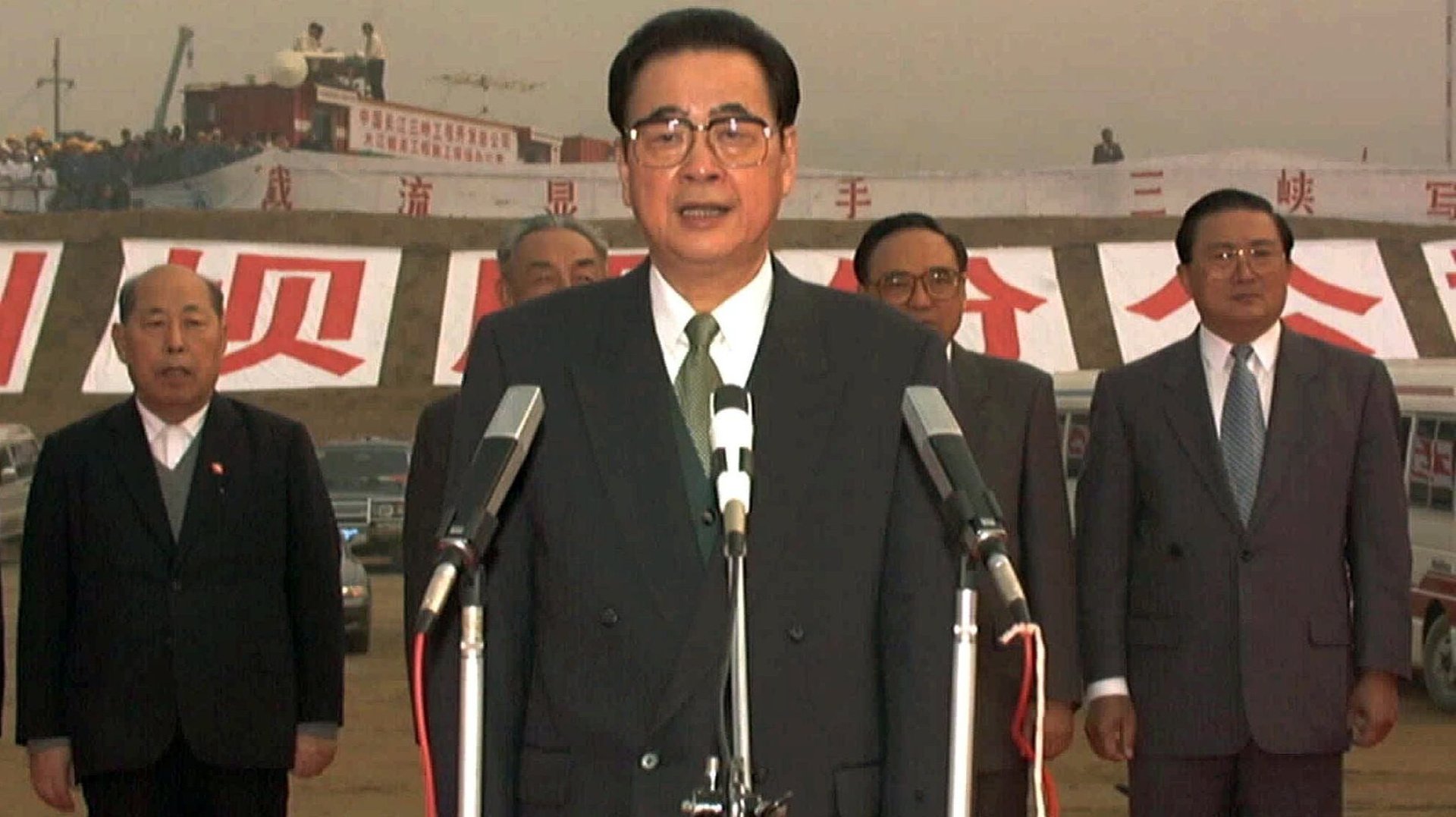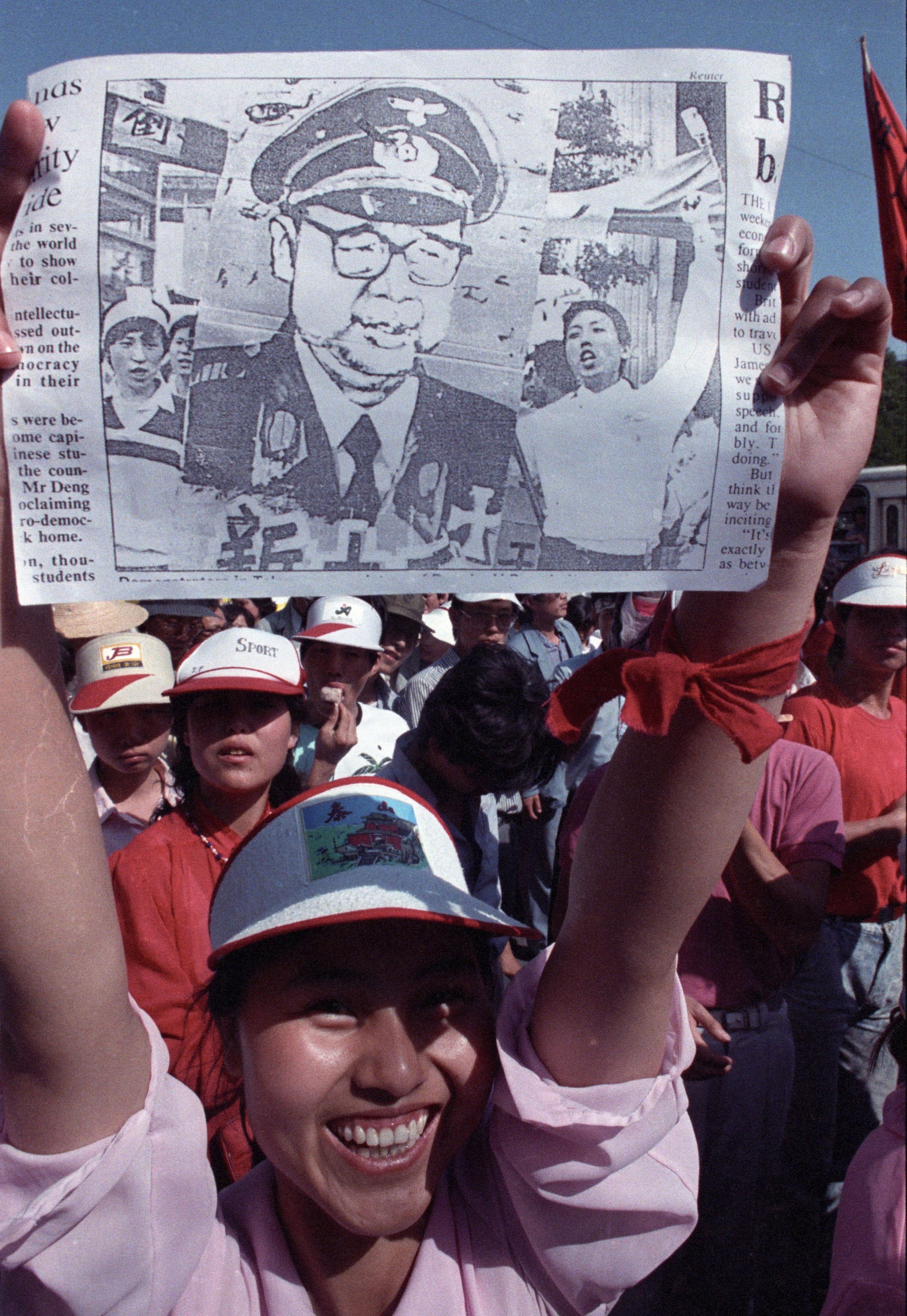The most hated figure of the Tiananmen crackdown has died
Former premier of China Li Peng, one of the figures most hated by the Tiananmen Square student protesters, has died at age 90, state-run news agency Xinhua confirmed today (July 23).


Former premier of China Li Peng, one of the figures most hated by the Tiananmen Square student protesters, has died at age 90, state-run news agency Xinhua confirmed today (July 23).
Li, who was premier from 1987 to 1998 and retired in 2003 as the head of China’s parliament, announced the imposition of martial law in May 1989, after which students in the Beijing square held up posters showing Li dressed in a Nazi uniform, and demanded his resignation. Weeks later, the Chinese military entered Beijing’s central streets and opened fire on thousands of people who had been camped there for weeks. That earned him the moniker “the Butcher of Beijing.”
“The square is packed with extremely excited crowds who keep shouting demagogic slogans. Right now, representatives of the hunger-striking students say that they can no longer control the situation. If we fail to promptly put an end to such a state of affairs and let it go unchecked, it will very likely lead to serious consequences which none of us want to see,” Li said in a speech in May 1989 explaining the decision to impose martial law.

In a 2014 memoir, Li did not mention the Tiananmen massacre, with the book covering events only up to 1983. However, according to excerpts from Li’s memoir (link in Chinese) which were leaked in 2010, there were divisions within the upper echelons of the Communist Party on how to deal with the protesters, but Li himself saw the pro-democracy movement as an attempt to overthrow the party and took a hardline stance. The declaration of martial law came two days after a televised confrontation between Li and student protest leaders Wu’er Kaixi and Wang Dan, with Li warning that “our nation’s reforms and opening to the outside world…and even the fate and future of the People’s Republic of China, built by many revolutionary martyrs with their blood, are facing a serious threat.”
That view was echoed in the report today by Xinhua on Li’s death, which said that the former premier took a “clear stance” and adopted “firm measures” to end the “chaos and political turmoil firmly and quickly.” Discussion of the June 4 crackdown in Tiananmen Square is near impossible in China, and where it occurs, it follows the state-sanctioned narrative that the military crackdown was necessary in order to put down a serious challenge to the party, with the decision paving the way for decades of prosperity and stability in the country.
In a tweet, former Tiananmen student leader Wu’er Kaixi, who now lives in exile in Taiwan, said that Li “was an asshole.”
Another student leader, Wang Dan, who lives in exile in the US, said (link in Chinese) in a statement that “Li was the executioner and butcher of the Tiananmen massacre, and whether he’s dead or alive he has already been nailed firmly to history’s pillar of shame. In the future, when the case of the Tiananmen massacre can finally be re-opened, people will not let him off the hook just because he is dead.”
Sophie Richardson, China director of Human Rights Watch, however, said that Li’s death meant that accountability for what happened in 1989 “got a bit dimmer.”
Li was born in 1928 in Sichuan, to a family that had deep personal ties to core members of the then nascent Chinese Communist Party. He was arranged by the party to study engineering in Russia in 1948, where he learned Russian, and returned to China in 1955.
Though Li is largely remembered for his central role in the Tiananmen crackdown, he was also key to the development of the Three Gorges Dam infrastructure project on the Yangtze River, which began in 1994 and cost $59 billion. Despite warning from scientists and even some officials who said that the project could bring serious financial and environmental disaster to the country, Li pushed ahead with it and argued that it would lead to unprecedented business opportunities from foreign investors. More than a million people had to be moved to make way for the dam, with hundreds of landslides recorded near the dam after it caused water levels to rise, according to China Dialogue, a website focused on environmental news about China.
More recently, the dam had to reassure citizens that it was safe after satellite photos from Google Maps circulated allegedly showing evidence that the Three Gorges Damn had warped.
In the 1990s, Li Peng and his family dominated the energy business in China. Later the monopoly was broken up into five companies, with two of his children going on to head two of them. Li’s son, Li Xiaopeng, became transport minister in 2016, after earlier serving as governor of Shanxi province. His daughter, Li Xiaolin, known in China as the “power queen,” in 2015 became vice president of China Datang, one of the country’s largest power-generating firms. He offshore holdings featured in the Panama Papers investigation in 2016, which examined how the world’s wealthy reduced their tax burden.